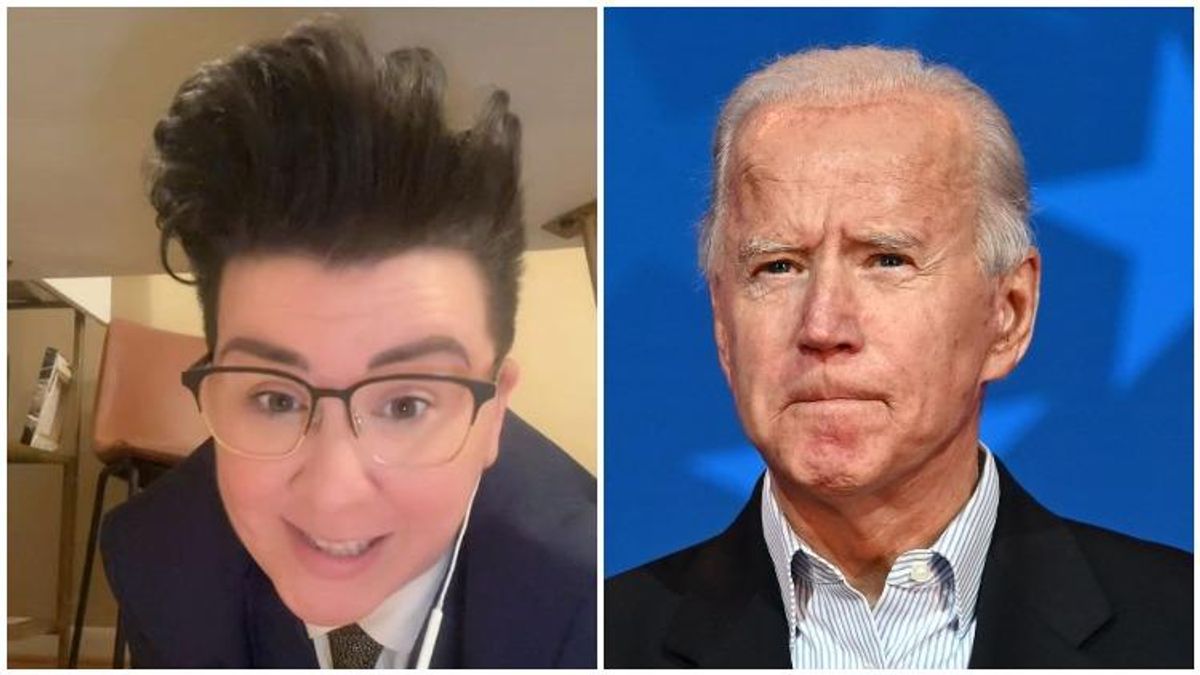Amid the announcement that President Joe Biden won't extend student loan relief, nonbinary journalist V Spehar is calling him out on his past support of legislation that has made it harder for borrowers to get out from under student loan debt.
In an episode of their TikTok series Under the Desk News, Spehar noted that as a U.S. senator in 1978, Biden went against most of his fellow Democrats in pushing through a bill that made many student loans unforgivable through bankruptcy. He also opposed a 1997 student loan forgiveness effort by President Bill Clinton, Spehar said. And they particularly denounced his support of a 2005 bill signed into law by President George W. Bush that made even more student loans unforgivable. Biden's record is further documented here.
"When he says student loan repayment starts again in February, I say those loans are between you and God," Spehar said. There has been a moratorium on repayments during the pandemic, but those will restart February 1, the Biden administration confirmed this week. It has taken some steps to make payments easier, however.
Biden campaigned on a promise to cancel at least $10,000 of student loan debt per borrower but has yet to take action. Some supporters of such a move have urged Biden to do it through executive action, but he has questioned whether he has this power. If Congress passes a bill to this effect, he would sign it, White House Press Secretary Jen Psaki said this week.
LGBTQ+ adults are more likely to have federal student loan debt than their straight and cisgender peers, according to a recent study by the Williams Institute in collaboration with the Point Foundation.
Using data from the Access to Higher Education Survey, the study found that 39.4 percent of LGBTQ+ people age 18 to 40 "have student debt in the form of federal student loans, private student loans from a bank or other lending institution, or from credit cards or other loans."
More than 90 percent of them had federal loans, so the rest of the study focused on that, finding that 35.4 percent of LGBTQ+ adults had federal student loans, compared to 23.2 percent of others. Breaking down along the LGBTQ+ spectrum, 51 percent of trans people had these loans, while the figure for LBQ cisgender women was 35.9 percent, and it was 27.9 percent for cisgender GBQ men.
Earlier studies have indicated LGBTQ+ people have more difficulty paying their loans off than straight and cisgender people, due to discrimination and other factors.
"It is important that the current policy discussions about loan forgiveness consider the impact on LGBTQ adults, who bear a higher burden of federal student loan debt," Jorge Valencia, executive director and CEO of the Point Foundation, said when the Williams-Point study came out in July. "The pandemic and the economic fallout could significantly impact LGBTQ people's ability to pursue higher education."













































































